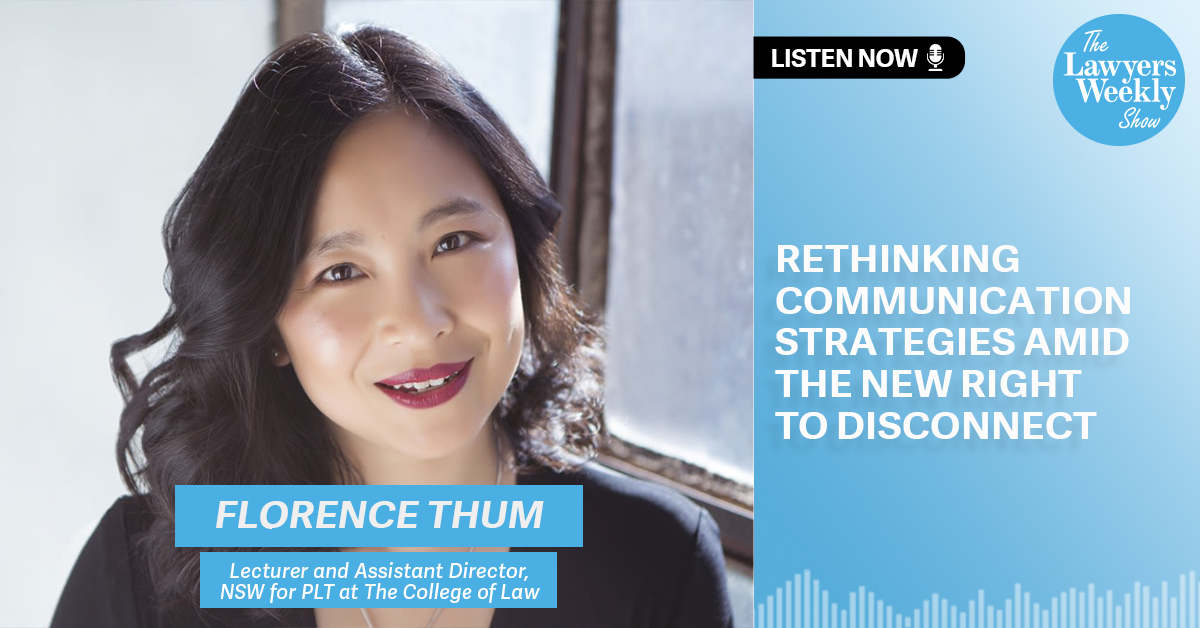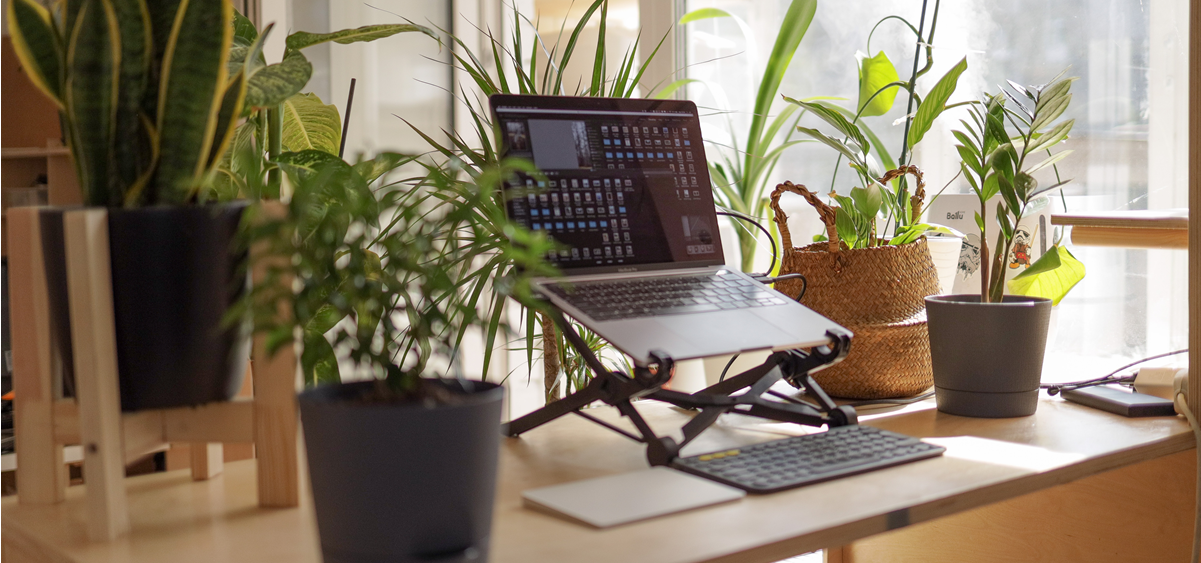Being trauma-informed
There’s been a lot of ‘talk’ about being trauma-informed in the workplace. Being trauma-informed is a must, but how?
It is contextual. As a psychotherapist in my professional space, being trauma-informed requires significantly greater attention and skill.
Nevertheless, for all our daily interactions, having an understanding the nature of trauma and adopting the necessary mindset and attitude are imperatives. Human connection and the compassion we have towards each other are the basis of being trauma-informed. It is not a thing we add to our repertoire only when we believe there may be a need for it; it is to be integrated in the way we communicate and interact generally.
Read about engaging in trauma-informed practice in my recent article for Lawyers Weekly in which I dispel some myths about trauma and provide some guidance you may find useful. They are applicable to any professional practice.
© 2024 Transfigure Therapy
Indicators of unhappy workplaces?
On invitation from Lawyers Weekly, I provided my comments on “[t]he new trends combating ‘unfulfilling’ and ‘detrimental’ workplaces‘.
Do not underestimate or dismiss these trends – such as, ‘snail girl era’, ‘bare minimum Mondays’ and their predecessor ‘quiet quitting’ – they give us valuable insights on the important issues and how to improve the modern workplace (and not limited to the legal profession).
I have posted about finding fulfilment in our work. And in turn, workplaces must evolve – it is a 2-way street.
“Workplaces must embrace its diverse people and the different ways in which they work; this means establishing inclusive practices and systems that promote psychological safety – in particular, trust and accountability – and are adaptable to the needs of its people”.
“Relationally, in the workplace, we have to care, to demonstrate compassion for others and ourselves, to move away from a scarcity mentality – where more for you means less for me – to an abundance mindset – there is enough for everyone, and to maintain a win-win approach with each other and our work.”
~ FlorenceT
A professional in a video-conference
Through the camera lens, our eyes clock congruence, that is harmony or compatibility (in this context) of words, tone, facial expression, and any other non-verbal cues.
Recall the times you met a stranger in a certain place, and thought “something’s not quite right”? Or chancing upon a friend and sensing something’s off? This is because we pick up inconsistent cues from that person’s verbal and non-verbal presentation including body language.
The same when we are in a video-conference. In fact, we are working harder to pick up cues because we know we have less to work with. And incongruence distracts.
So what helps us to appear professional in a video-conference?
Appearance
What we wear and our personal grooming and style contribute to the professional appearance. What is appropriate will depend on the purpose of the video-conference, who the participants are, perhaps the industry/professional expectation, and the environment in which the video-conference is being held. This is synonymous to wearing appropriate attire to an in-person meeting. Most importantly, be authentic. There are different types of casual professional attire, select that which portrays who you are.
Environment
Our appearance ought to be consistent with the environment, that is our surroundings when we are in a video-conference. Is it congruent to be wearing a dark suit if our background is a view of the bedroom (no matter how stylish it may be), or a Zoom background of a beach at sunset? It is likely we will sense a degree of awkwardness. If you wish to convey a relaxed atmosphere then lose the dark suit.
We bring our environment into a video-conference through the sights and sounds being transmitted from where we are physically located. Mute the microphone where required and minimise potential visual distraction to other participants in the video-conference. This is also a sign of respect.
Tech and equipment
A good webcam is necessary to capture clear visual and audio, which eases communication. This is a necessary investment (not a luxury) in the current professional space. Couple it with a good pair of headset or microphone and speakers. No matter how good we look, if we can’t be heard then the whole scene is sub-standard and interferes with the perception of professionalism. Imagine a documentary with beautifully shot visuals but you have difficulty hearing the narrator?
Placement of the camera is also important. A view up one’s nostrils is never pleasant, nor is a view of the top of one’s head. The camera should be placed directly at eye level or slightly above the eye-line. The illusion of us looking into the camera and thus meeting another’s eyes is inviting. Its absence can create a sense of disconnection and isolation.
Lighting is important. We are attuned to consider a face hidden in shadow as suspicious. No matter if we are thinking it or not, we will react less favorably to a partially hidden face, or when we are unable to see someone’s eyes or facial expression. This is particularly true in a culture which considers making eye contact as a sign of sincerity, honesty and good manners. Using a ring light to illuminate our face solves this issue. Ring light is usually placed behind the camera and directly facing our face. This allows flexibility of where we position ourselves for a video-conference, and removes the need to be facing a window for proper light or be concerned about back-lighting.
Preparation
Spend time considering what you need before each video-conference. Be prepared.
Do not turn on your video or unmute before you are ready. Shuffling paper, appearing distracted as you attempt to close down an application, fidgeting as you make yourself comfortable – all can appear less than professional.
Perhaps this means leaving yourself with ample time in between calls to gather yourself before you start the next video-conference.
Attitude
Professionalism is fundamentally about behaviour and attitude. Our behaviour ought to be congruent with our attitude.
Any discomfort or resentment (a video-conference may not be everyone’s meeting mode of choice) will channel through as a result of inconsistency in verbal and visual expressions, say between your stiff smile, or the wariness in your eyes, or your agitated gestures, or your constant shrugs or nervous laugh.
A good way to familiarise yourself to being in front of a camera is to be in front of one. Practice, for example starting your webcam and leaving it on while you work, or take a recording of yourself. As with actors, you will soon “forget” about the camera, or be less self-conscious. You may even learn to use the camera to your advantage.
A moderate and calm demeanour assists with a professional presentation. Exaggerated gestures or volume are magnified in a video-conference. Fidgeting and sudden movements will interrupt and distract. To find “just right” will depend on the context and how practised you are before a webcam.
When the camera is focused primarily on your face – any smirk, flinch, grimace, or eyes-rolling, are captured and transmitted. Being respectful is an important condition to being a professional. A respectful attitude is keenly felt even through the camera lens.
I hope this gives you food for thought and inspiration to act.
~ FlorenceT
Finding fulfillment in your work
I facilitate growth, whether personal or professional.
This is the simple answer to the question I get asked often, “what does a psychotherapist or coach do?”
This is then followed by, “why do you do it?” Because it makes me happy, which of course begs the question, “but why?”
Clients have come to me wanting to know how to make their life “right”, to be happy or how to make the right career decisions, how to climb the mountain in their way, how to achieve certain career goals, how to feel less discontent, how to overcome their malaise… And yes, there are interventions, techniques and strategies which I employ.
And in their questionings, there is one thing underpinning the multitude of wants or desires – it is to move on, to be unstuck, to grow.
Every client at some point in their journey with me expresses the need
- to experience being alive in their everyday life,
- to feel a sense of accomplishment in their personal or professional life, or
- to know there is a reason, the why, to their existence.
This is to find their raison d’être.
I am the sounding board which provides a safe space for clients to give voice to their life – past, present and future. I am the mirror upon which they see who and what they are and could be. Clients test out and then spread their wings so to stretch beyond what they know, to explore and take some risks which they are emotionally or psychologically ready or prepared to take.
When the necessary conditions are created, when there is fertile soil, the growing will happen. Each person’s growth is unique. There is no comparison.
This work that I do (which is echoed in my other life as an educator) – to create, to lift, to give others the necessary tools, to give them space to explore and find their way, to create systems or conditions which motivate them to be better versions of themselves – is my raison d’être.
The immeasurable privilege of being able to hold space for another, to be a repository of another’s story, to be an agent of another’s personal or professional growth is second to none.
Social reformation or organizational change always begins with the individual. My work means much and has greater ramifications. Within it, I find great joy and fulfillment.
Find your raison d’être. Seek work so you can live it. There is your fulfillment.
What’s more than a book group?
I love books, and reading. I love where books take me.
In my psychotherapy work, books and poetry become my tools.
Yet sometimes with the responsibilities of home, parenting and work, reading for leisure takes a back seat. In fact, it can feel like a luxury dabbled with a little guilt, as we take time away from the “shoulds” of our lives.
I know (as you do) that self-development or personal growth or “dealing with my stuff” is helpful not just for myself but also to those with whom I come in contact. I cannot give when empty.
I need to give myself permission to grow, to work on being my best self. Only then can I be in my best self with others.
No better time than now, as we are required to stay home and some of the “shoulds” have been taken from us. Maybe there’s a little time saved from our daily work commute. Or perhaps you’ve always wanted to but can’t justify the time. This may not even be at the top of your leisure list but being restricted from the outside world, this is a pleasurable option.
Come join me, (a psychotherapist trained in group facilitation and an avid book-reader) in an online book group which serves the purpose of leisure and personal development.
Stories can shape your lives. Here, you may come upon your tribe. You may gather some new insights. You may experience a certain liberation.
Ready to read books, have robust facilitated conversations, and share insights in a supportive space? There will be a selection of books which I will curate for the group to explore aspects of living life, which will inspire and motivate you to be better versions of yourself.
Interested to find out about More-than-a Book-Group?
Complete this Expression Of Interest (obligation-free) form, and I will be in contact to explore further.
~ FlorenceT
Be who you are and empowered
What an incredible weekend!
Spending time with my sisters in Law at the Aust. Women Lawyers Conference reminds me of why I chose to be a lawyer. The stories these amazing women told also sadly reminds me of why I left the practice of law. Though I am never far… for I am inspired to create change. These familiar stories are not intended to reinforce “victimhood” rather to make our, and women’s stories in general, visible. They are told in the spirit of recognition, solidarity and support.
They and the many actions women lawyers have taken to stake their claim to their rightful inheritance in the law, and to better the lives of women add to my inspiration and motivation. There was much discussion, and provocative and innovative ideas.
Some key messages (taken from my Tweets as I live-tweeted the event):
Lawyers need to engage their curiosity, be adaptable to change, collaborate, be inclusive, develop business acumen, have great communication skills and to not lose sight of the humanity in law.
These are essential human skills, salvaged from the trench of the “soft skills” label.
I will not be defined by the many labels you may put on me. I am complex.
And knowing who we are and what we stand for, are precursors to being fulfilled in our personal and professional lives, to being successful.
Inclusion and diversity require – in the words of Aretha Franklin, RESPECT.
Respect is a conscious act. What does it look like in practice? How do we do it?
Investing in the future (as was the theme of the Conference) begins with investing in the now, in ourselves.
Do we value ourselves enough to proclaim through our words and actions, “I am worthy”, “I am enough” and thus, “I belong”, feeling comfortable in the space we inhabit.
Sounding much like the work I do in Transfigure to empower professionals. Perhaps this is the reason why I am now more energised than before, to create change by facilitating others
- to engage with their human skills,
- to own their true selves and stand tall,
- to practice compassion and kindness on themselves and others, and
- most importantly, to take time for themselves for personal and professional development.
Fuelled by the passion of these incredible women, and to quote the AGS AWL Award recipient, the estimable Fiona McLeod SC, I will “get to it”.
~ FlorenceT
Impact of digitised delivery of legal services
“The features of digitized legal providers are becoming well- defined– they are customer centric, tech and process enabled, agile, diverse, accessible to clients in real-time, intelligent, globally branded, scalable, multi-disciplinary, and enterprise focused.”
What does the impact of technology on legal services mean for the humans in that space?
Customer-entric, agile, diverse, accessible, intelligent and enterprise-focused apply to lawyers (and other professionals). What skills are required to respond to a changing workplace?
They include the ability to grow and manage relationships, an ability to process and consolidate large amount of information, and the psychological agility to remain calm and focused in times of transition and change.
For article in Forbes magazine, see here.
Brainwriting… what is it?
Brainwriting is “scientifically proven to get better creativity from anyone” says Leigh Thompson, professor at Kellogg School of Management at Northwestern University.
Brainwriting is the precursor to brainstorming. Write your ideas before you share them, as a way to navigate team dynamics. Seems like a technique most suited to those exhibiting greater introversion.
Check out the post here.
The future of the lawyer?
Richard Susskind’s new book on the future of law addresses the threat to legal profession in the rise and rise of technology. Will the profession react or respond?
In an interview with ‘Legal Week’ Susskind said “The law firms that survive and thrive are those that will refocus their people”.
What are the implications for lawyer wellbeing in the face of this change? This is a subject of my presentation at the Law and Society Association conference in New Orleans in June 2016.
http://www.lawyersweekly.com.au/news/18524-traditional-lawyer-model-under-threat-susskind












